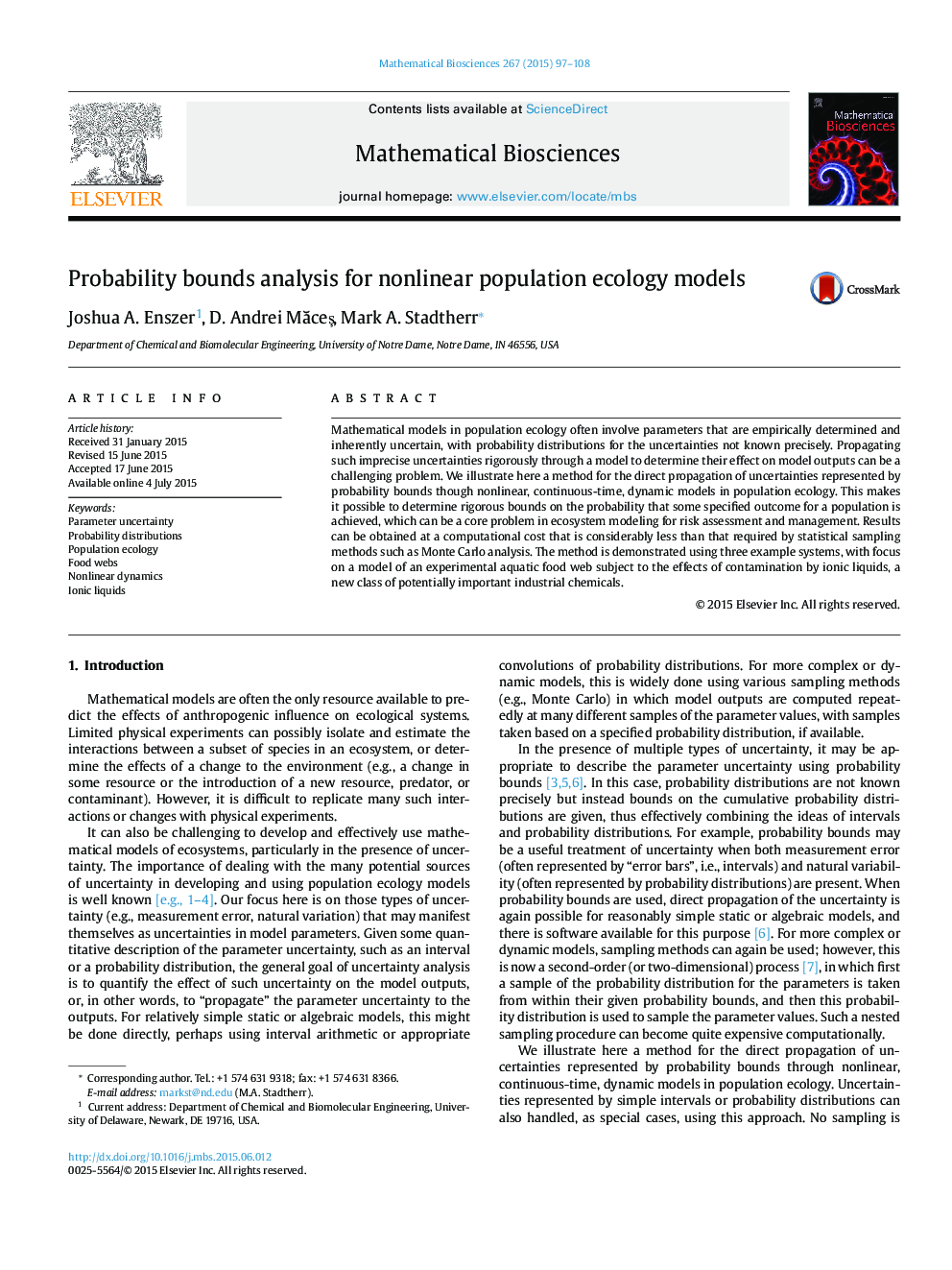| Article ID | Journal | Published Year | Pages | File Type |
|---|---|---|---|---|
| 6371892 | Mathematical Biosciences | 2015 | 12 Pages |
Abstract
Mathematical models in population ecology often involve parameters that are empirically determined and inherently uncertain, with probability distributions for the uncertainties not known precisely. Propagating such imprecise uncertainties rigorously through a model to determine their effect on model outputs can be a challenging problem. We illustrate here a method for the direct propagation of uncertainties represented by probability bounds though nonlinear, continuous-time, dynamic models in population ecology. This makes it possible to determine rigorous bounds on the probability that some specified outcome for a population is achieved, which can be a core problem in ecosystem modeling for risk assessment and management. Results can be obtained at a computational cost that is considerably less than that required by statistical sampling methods such as Monte Carlo analysis. The method is demonstrated using three example systems, with focus on a model of an experimental aquatic food web subject to the effects of contamination by ionic liquids, a new class of potentially important industrial chemicals.
Keywords
Related Topics
Life Sciences
Agricultural and Biological Sciences
Agricultural and Biological Sciences (General)
Authors
Joshua A. Enszer, D. Andrei MÄceÈ, Mark A. Stadtherr,
